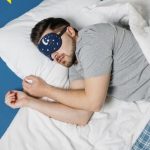 Crime
Crime  Crime
Crime  Technology
Technology 10 Hilariously Over-Engineered Solutions to Simple Problems
 Miscellaneous
Miscellaneous 10 Ironic News Stories Straight out of an Alanis Morissette Song
 Politics
Politics 10 Lesser-Known Far-Right Groups of the 21st Century
 History
History Ten Revealing Facts about Daily Domestic Life in the Old West
 Weird Stuff
Weird Stuff 10 Everyday Products Surprisingly Made by Inmates
 Movies and TV
Movies and TV 10 Actors Dragged out of Retirement for One Key Role
 Creepy
Creepy 10 Lesser-Known Shapeshifter Legends from Around the World
 Animals
Animals 10 Amazing Animal Tales from the Ancient World
 Gaming
Gaming 10 Game Characters Everyone Hated Playing
 Crime
Crime 10 Terrifying Serial Killers from Centuries Ago
 Technology
Technology 10 Hilariously Over-Engineered Solutions to Simple Problems
 Miscellaneous
Miscellaneous 10 Ironic News Stories Straight out of an Alanis Morissette Song
Who's Behind Listverse?

Jamie Frater
Head Editor
Jamie founded Listverse due to an insatiable desire to share fascinating, obscure, and bizarre facts. He has been a guest speaker on numerous national radio and television stations and is a five time published author.
More About Us Politics
Politics 10 Lesser-Known Far-Right Groups of the 21st Century
 History
History Ten Revealing Facts about Daily Domestic Life in the Old West
 Weird Stuff
Weird Stuff 10 Everyday Products Surprisingly Made by Inmates
 Movies and TV
Movies and TV 10 Actors Dragged out of Retirement for One Key Role
 Creepy
Creepy 10 Lesser-Known Shapeshifter Legends from Around the World
 Animals
Animals 10 Amazing Animal Tales from the Ancient World
 Gaming
Gaming 10 Game Characters Everyone Hated Playing
10 Crazy Ways Sleep Deprivation Can Affect You
Sleep may not be the highest priority on most people’s to-do lists, often coming second to work or leisure. However, people might need to rethink putting sleep on the back burner. According to experts, individuals above the age of 18 require a minimum of seven hours of sleep to be healthy, and many adults are failing to meet this amount of sleep.
Unfortunately, a recent article reports that “more than 30% of adults have a daily sleep debt—when you sleep less than your body needs—of over an hour, while nearly 1 in 10 adults are missing two or more hours of sleep each night.” Sleep is vital for mental and physical well-being; going without it can have severe side effects. So read along for ten shocking ways sleep deprivation can affect you!
Related: Top 10 Messed Up Things People Have Done While Sleepwalking
10 Poor Sleep Can Make People Less Kind
Altruism, defined as the unselfish devotion to the welfare of others, is vitally important for the well-being of communities. Human kindness is vital for the growth and longevity of communities. However, if sleep deprivation rates continue to rise, generosity may be in short supply in the future. An article from Science News describes a study that analyzed participants’ altruism in relation to their sleep.
The study found that “the more time participants spent awake in bed, a measure of poor sleep, the lower their altruism scores. That drop in altruism held true both when comparing individuals to themselves and when averaging scores across the group.” While this finding may seem trivial, it’s important to remember how human civilizations could thrive based on community and cooperation. Generosity makes the world go round; thus, getting a good night’s sleep will also make the world go round![1]
9 Drowsy Driving Can Have the Same Risks as Drunk Driving
Drunk driving is a big no-no, and this is a widely known hazard. However, drowsy driving is an underestimated killer! The National Highway Traffic Safety Administration (NHTSA) estimates that in 2017, “91,000 police-reported crashes involved drowsy drivers. These crashes led to an estimated 50,000 people injured and nearly 800 deaths.” With the uptick in sleep deprivation among those of driving age, the NHTSA has begun efforts to combat drowsy driving. They also provide tips to avoid drowsy driving.
While sleep is the number one way to avoid drowsy driving, it’s also helpful to avoid driving during peak sleepiness periods and make sure to check prescriptions and over-the-counter medications. So, next time you get behind the wheel, make sure you’re free of any drowsiness![2]
8 A Lack of Sleep Can Cause Weight Gain & Obesity
Obesity and sleep deprivation are both public health concerns that are growing each year, and they may be closely related. A study published in the National Library of Medicine found that “individuals with short sleep duration (less than 6 hours) were 7.5 times more likely to have a higher body mass index” and that “adults who slept 7.7 hours had the lowest BMI; those with shorter and longer sleep duration had progressively higher BMI.”
Unfortunately, with the correlation between sleep deprivation and obesity, there is also evidence of obesity contributing to sleep deprivation. As stated in the study, obesity can contribute to obstructive sleep apnea, which can cause airways to narrow and can ultimately cause poor sleep. So it’s important to avoid the cycle altogether and get a good night’s rest![3]
7 Dementia Risk Can Increase If You’re Not Getting Adequate Sleep
Dementia is a very difficult disease for both the person diagnosed and their loved ones. Symptoms tend to trigger a decline in cognitive abilities and behavior, leading to frayed relationships and poor mental health. Therefore, many individuals are taking precautionary measures to avoid the risk of developing dementia. However, many don’t factor in the role that sleep deprivation may play.
A New York Times article reports that middle-aged individuals who regularly fail to get an adequate night’s rest may be more at risk of developing dementia. The article refers to a study where “compared with those who averaged seven hours of sleep a night, the study participants who slept six hours or less on weeknights were 30 percent more likely to be diagnosed with dementia nearly three decades later.” Therefore, this is an important reminder to prioritize your sleep, as it can help offset other diseases later on![4]
6 24 Hours or More Without Sleep Can Cause Hallucinations
Hallucinations are eerie to think about, and for good reason. Hallucinations may look and feel real, but they’re only byproducts of your brain. Thus, if you want to avoid the risk of hallucinations, proper rest is key. A study published in the National Library of Medicine found that after a period of sleep loss, perceptual distortions and hallucinations were “reported in individuals with no history of psychiatric illness” and that “sleep problems correlate with an increased frequency of psychotic disturbances such as hallucinations and delusional beliefs.”
However, don’t stress out too much if you miss a good night’s rest! The hallucinations described were typically observed in extreme cases of sleep deprivation, such as 24 to 48 hours without sleep. But it’s still important to keep in mind that hallucinations are a risk of skipping too much sleep![5]
5 Your Heart Can Be at Risk If You’re Deprived of Sleep
Most people know to avoid too much red meat and cholesterol in order to offset the risk of heart attacks, but many individuals are unaware of the impact that sleep can have on the heart. The American Heart Association reports that “people who slept fewer than six hours a night—compared with those who slept six to nine hours—had a 20% higher risk of heart attack.”
With heart disease being the #1 killer of humans for more than 100 years, it’s becoming increasingly important to participate in as many preventative measures as possible to ensure longevity. Therefore, protect your heart by protecting your sleep![6]
4 Not Getting Enough Sleep Can Put a Strain on Your Love Life
Having the same sleep schedule as your partner can be amazing! However, if both partners’ sleep schedules fail to provide enough rest, the joint sleep schedules may strain the relationship. Additionally, if one partner is a restless sleeper, it can cause the other partner to struggle to sleep, resulting in both partners getting poor sleep.
A study published in ScienceDirect found that “when both partners slept less, couples interacted in a more hostile way than when at least one partner slept more.” Hostility in relationships can easily lead to partners going their separate ways; however, couples have found a new method to ensure that both parties are well-rested. Couples noticed that they encounter less conflict by sleeping in separate beds or separate rooms. Therefore, if you and your partner struggle to see eye-to-eye on sleep, it might be worth a try![7]
3 Failure to Get Proper Rest May Tank Your Productivity
Many people skip sleep to study for a test or finish a task at work. However, this tactic ends up backfiring for many individuals. According to the National Heart, Lung, and Blood Institute (NHLBI), “People who are sleep deficient are less productive at work and school. They take longer to finish tasks, have a slower reaction time, and make more mistakes.”
Additionally, a lack of sleep may even lead to short periods of subconsciously falling asleep, coined as “microsleep.” As stated by the NHLBI, “Microsleep refers to brief moments of sleep that happen when you’re normally awake. You can’t control microsleep, and you might not be aware of it.” So, if you aim to maximize productivity by skipping a few hours of sleep, you might be better off getting a good night’s rest instead![8]
2 Your Lack of Sleep May Be Hurting Your Immune System
Your immune system is crucial for fighting off harmful, infectious diseases. However, many factors can weaken the body’s immune system, leading to an increased risk of catching unwanted sicknesses and can even delay recovery. And to no surprise, sleep is one of these factors.
According to the Mayo Clinic, “Studies show that people who don’t get quality sleep or enough sleep are more likely to get sick after being exposed to a virus, such as a common cold virus. Lack of sleep can also affect how fast you recover if you do get sick.” Being sick is never fun—therefore, it’s vital that you get enough sleep to prevent your body from succumbing to illness![9]
1 The Benefits of a Good Night’s Rest
With all of the scary side effects of sleep deprivation, it’s important to remember that there are many tactics to help you improve your sleep habits. The National Heart, Lung, and Blood Institute suggests tips such as keeping a consistent sleep schedule, taking an hour before bed for quiet time, and keeping your bedroom quiet, cool, and dark to maximize your sleep. There are endless benefits to getting a good night’s sleep, so make sure to take care of yourself and allow your body to recover properly each night. Sweet dreams![10]








